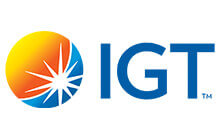Title: Why are cyber security measures important for SMEs?
MD: Amid challenges like inflation and competition, ignoring cyber security measures is not an option. Implementing measures and raising awareness are essential.
Keywords: cyber security measures, what are cyber security measures, types of cyber security measures, cyber security for businesses,
As of 2023, cyber security is a major threat to the 5.5 million SMEs in the UK. SMEs can be severely impacted by cyber attacks, which can leak confidential information or financial data. Cyber security measures are often overlooked by SMEs, which is no surprise given the lack of knowledge surrounding them. So, why are cyber security measures so important for SMEs?
Cyber security measures are essential for SMEs because cyber threats are on the rise. Amid challenges like inflation and competition, ignoring cyber security is not an option. Implementing measures and raising awareness are essential for business owners.
Read on to find out how cyber security measures can protect your business, the most common threats facing SMEs, and what a cyber strategy consists of.
Why Are Cyber Security Measures Important For Businesses?
As mentioned above, cyber threats are on the rise, meaning that more and more businesses are at risk of a cyber attack. A cyber attack on your company can not only cause disruptions in your daily operations but also downtime and productivity loss. According to a survey conducted by Vodafone earlier this year, 54% of SMEs had experienced 1-to-5 cyber attacks in the last 12 months, and that 10% had experienced six or more attacks. In order to protect your business as much as possible, you must implement a cyber security strategy. A cyber security strategy is essentially a detailed plan explaining how a business aims to protect themselves from cyber threats.
What Does a Cyber Security Strategy Consist of?
In order to create an effective cyber security strategy, it must consist of the following:
- Security awareness: If you don’t know how to keep your online information safe, it’s hard to know what to do in order to protect your business. Actively learning about online safety allows you to figure out the specific dangers that might affect you and your business.
- Threat prevention: The tools/software that act as your first line of defence against cyber security occurrences are part of risk prevention. This includes devices like antivirus software, firewalls, and password managers.
- Data management: Data management includes the procedures and safety precautions necessary to protect your data.
- Network security and access control: Your risk of unauthorised access and data breaches will be reduced by securing your network and restricting access to your systems.
- Regular monitoring and reviewing measures: Regularly revisiting and refining your security measures guarantees your business stays safeguarded from emerging dangers.
Why Are SMEs More Vulnerable to Cyber Attacks?
SMEs can be seen as more desirable targets, putting them at higher risk of online attacks, due to a number of reasons, such as:
- SMEs can be more dependent on digital processes to run their daily operations.
- Small businesses especially usually have fewer resources to respond to cyber attacks.
- SMEs typically have a smaller budget, thus they usually don’t have the budget to implement strong cyber security measures.
- SMEs usually do not have a dedicated IT department to handle cyber security measures.
- Small businesses are sometimes seen as gateways to larger corporations by cyber hackers.
Cyber Security Threats Facing SMEs
Outlined below are 4 common cyber security threats that SMEs face. When you are putting together your cyber security strategy, knowing the predominant threats is essential.
Viruses
While viruses come in various forms, their common purpose is to inflict damage on your hardware. Computer viruses have the ability to essentially damage programmes, delete or harm files, and reduce overall computer performance. These malicious entities can infiltrate your system through several means, such as sharing files, opening infected emails, visiting malicious websites, or downloading harmful applications.
Ransomware
As the name suggests, Ransomware holds a businesses vital information for ransom, including: passwords, credit card details , personal information, files, databases, applications, and other valuable assets. The cyber hacker does this in order to blackmail the victim for money, the “ransom” typically has to be paid within a short period of time, or the files will be lost.
Password Hacking
Password theft remains a persistent issue, emphasising the significance of making intelligent password choices to safeguard personal information. Cybercriminals employ high-speed programmess to swiftly test passwords, and their success rate is higher when victims use easily guessable passwords like “12345” or “password.” Hence, it is crucial to adopt unique and complex passwords to enhance your online security.
Phishing
Phishing is when criminals use emails, text messages or phone calls to trick their victims into giving away their personal information. Often, the end goal is to make you visit a website, which can download a virus onto your computer, or steal bank details or other valuable and important information.
Free Core Membership With NEBRC
At NEBRC, we understand the importance of educating small businesses on the threats to cyber security and the measures needed to prevent this. Our Free Core Membership is designed to provide you with relevant resources and ongoing support to improve your resilience to cyber security threats. For further information, fill out our contact form today.








